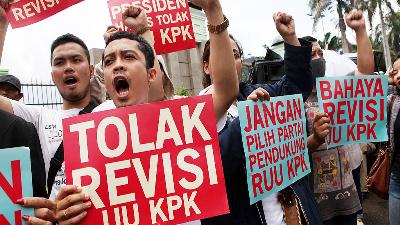Indonesia’s Hypocrisy over the Rohingya
Monday, December 18, 2023
For the sake of humanity, the Indonesian government must not be hypocritical or wash its hands of the Rohingya refugees.
arsip tempo : 174708362488.

THERE is no use in blaming some of the people in Aceh who are refusing to accept Rohingya refugees. What should be questioned is the government’s phobia about dealing with these waves of boat people.
In the last month, more than 800 Rohingya refugees have arrived on beaches in Aceh. They were expelled and are stateless because the Myanmar military junta does not acknowledge their existence. Before the latest wave, the number of Rohingya refugees stranded in Aceh stood at more than 1,500.
So far, the Acehnese people have been ‘friendly’ to the refugees. While other nations have turned away Rohingya refugees, the people of Aceh have accepted them. Aceh applies the traditional Panglima Laot legal system, which obliges fishermen to help anyone in danger at sea. The solidarity of Acehnese people is closely linked with their bitter experience of disaster and protracted conflict.
The recent refusal of the Acehnese to accept these refugees would not have happened if the government had been ready to deal with them. The problem is that the government simply washed its hands. When a group of Rohingya people landed on the beach in Pidie Regency, Aceh, in November, the Foreign Affairs Ministry said that Indonesia was not a party to the 1951 Refugees Convention, meaning it was not obliged to take in refugees.
This stance from the government is at odds with Indonesia’s status as a member of the United Nations Human Rights Council. The government should not be hypocritical, strongly condemning human rights violations in faraway nations but ignoring the fate of the Rohingya refugees in front of its eyes.
It is true that Indonesia has not yet ratified the 1951 Refugees Convention. But Indonesia is bound by the principle of non-refoulement, meaning refugees cannot be returned to their home countries or left in danger of their lives. This principle is reinforced by the Convention against Torture, as well as the International Covenant on Civil and Political Rights, which we have ratified.
The government must not simply sit idly by and hope local people take the initiative to help the refugees, as has happened in Pidie, Bireuen, East Aceh, Sabang and Aceh Besar. After all, local people have only limited abilities. Their reserves of patience could run out.
Indonesia has Presidential Regulation No. 125/2016 on the Handling of Refugees from Overseas. This regulation states that these refugees are handled through cooperation between the central government, the United Nations High Commission for Refugees (UNHCR), and international organizations. However, Presidential Regulation No. 125 has not been implemented effectively. As well as not having a technical regulation to implement it, there are problems with its substance. For example, Article 24 obliges the regions to provide accommodation for refugees, despite the fact that they do not have special funding for this.
However, helping refugees is a humanitarian obligation, not simply a question of whether or not there is funding or regulations. Therefore, the Indonesian government should put more effort into diplomacy. Together with other nations that care about human rights, Indonesia needs to put more pressure on Myanmar to acknowledge the existence of the Rohingya.
Together with the UNHCR and other institutions, Indonesia should lobby the nations where the Rohingya are headed to accept them. Only this way, these exiled boat people can be saved.











